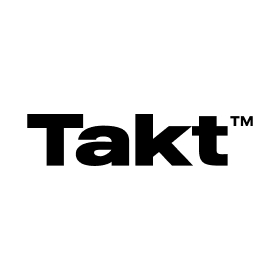
How Virtual Data Rooms Help eCommerce Startups Build Investor Trust
The confidence of the investors in the eCommerce space has never been more difficult to secure. The industry is a high-paced, high-data, and highly competitive one. Investors do not merely desire to observe traction in the market; they require evidence of operational discipline, financial openness, and responsible management of data.
For founders, this means that vision alone isn’t enough. Every file, report, and contract contributes to the perception of professionalism. That’s where a virtual data room for startups becomes invaluable. It provides the structure, security, and traceability needed to inspire confidence and accelerate fundraising for eCommerce businesses.
Why eCommerce Startups Struggle During Fundraising
The majority of eCommerce startups are velocity-driven, and they have various sources of data: Shopify or Magenta dashboards, payments processors, logistics platforms and advertising reports. With more operations, documentation will get dispersed: financial models will be in one folder, supplier agreements will be in another and marketing outcomes will be in an inbox.
This fragmentation slows due diligence and erodes investor trust. Sensitive files may circulate over unsecured channels, and multiple “final” versions of a contract create confusion. Even the most promising startups appear unprepared when they can’t produce a coherent record of their operations.
Having an organized information management approach isn’t just a convenience; it’s an indication of credibility.
Investors expect governance readiness from day one, and failure to demonstrate it can mean longer negotiations, lower valuations, or missed opportunities.
Virtual Data Rooms as a Trust-Building Infrastructure
A virtual data room (VDR) is a secure digital workspace designed for managing confidential information during transactions. For eCommerce startups, it functions as an operational command center during fundraising — where all financials, legal documents, and marketing data are centralized, organized, and protected.
Instead of ad hoc file-sharing, every document inside the VDR has version control, access permissions, and an audit trail. Founders can assign access levels to specific users — such as investors, legal counsel, or advisors — and monitor every action taken within the platform.
This structure communicates maturity. It shows that management not only understands their business metrics but also treats information risk with the same seriousness as market risk.
Transparency with Control: What Investors Expect
Investors value openness but expect discipline. In fundraising, startups need to balance between transparency and protection—they should provide enough data to build trust without being an unnecessary risk.
With a properly configured data room for fundraising, it is possible to do so with startups. As an example, aggregated metrics of customer acquisition and performance KPIs can be shared by the founders but without revealing the individual customer information. They are able to supply redacted supplier contracts to authenticate sourcing relations without trade secrets being disclosed.
Role-based access ensures each stakeholder sees only what’s relevant. Financial partners might review revenue models and growth forecasts, while legal teams examine incorporation documents and IP assignments. Meanwhile, the audit trail captures who accessed which files, when, and for how long — creating an immutable record that reinforces credibility and reduces disputes later.
In a world where data breaches and compliance failures can destroy brand value overnight, such discipline becomes a competitive advantage.
Streamlining eCommerce Due Diligence
Fundraising often feels like organized chaos — shifting term sheets, updated forecasts, and constant investor questions. A virtual data room brings order to this pace.
All critical records — profit and loss statements, cap tables, logistics and vendor contracts, ad performance data, and retention metrics — live in one source of truth. No more competing drafts or endless email chains. Integrated Q&A features let investors ask questions directly within the platform, with responses linked to the relevant files.
This efficiency not only saves time but also demonstrates operational maturity. Investors interpret clean organization and version discipline as indicators of a well-run business — one capable of scaling efficiently once capital is deployed.
Security and Compliance as a Competitive Edge
In eCommerce, security isn’t optional — it’s existential. Possessing customer transactions, payment information, and user accounts means that you should adhere to such directions as PCI DSS, GDPR, and CCPA. The violation of trust will result in an immediate loss of brand loyalty and will drive investors away.
This is addressed by virtual data rooms through the use of end-to-end encryption, watermarking, and permissions that are based on granularity, and thus, they prevent file leakage or access by unauthorized parties. The business operations are automatically recorded, and access may be withdrawn anytime by the administrators.
By showcasing strong governance, startups send a powerful message: “We’re ready for scale and regulation.” To investors, this preparedness reduces the perceived risk and therefore it makes funding decisions quicker and more confident.
Avoiding Common Mistakes Startups Make
Even with the right tools, some founders weaken their fundraising process with simple missteps. The most frequent ones include:
Over-sharing: Giving all users full access creates security risks and deters sensitive uploads. Start with the least privilege and expand access as needed.
- Disorganized structure: Randomly named folders and duplicate files make investors question the company’s internal order.
- Shadow communications: Moving clarifications to email or Slack breaks the audit trail and creates inconsistencies.
- Neglecting cost management: Ignoring storage and access tiers can lead to surprise charges mid-round.
By avoiding these pitfalls, startups keep their fundraising workflows clean, transparent, and professional.
Beyond Fundraising: Long-Term Benefits for eCommerce Startups
A VDR’s value doesn’t end when the round closes. The same infrastructure can streamline board reporting, investor updates, vendor management, and regulatory audits.
For instance:
- Founders can store quarterly investor reports, maintaining transparency post-funding.
- Vendor contracts and NDAs can be managed in one secure environment.
- Compliance checks for data protection or financial audits become faster, with all documents organized and traceable.
In essence, the VDR becomes a long-term trust platform, supporting governance as the company scales into new markets or prepares for future funding rounds.
Choosing the Right Virtual Data Room for eCommerce Startups
Not all VDRs are created equal. eCommerce startups should prioritize the following factors when selecting a platform:
Ease of access management: Ability to adjust permissions instantly without complex admin overhead.
- Scalability: The VDR should grow with the business as new investors, products, or regions are added.
- Integrations: Look for compatibility with e-signature tools, CRM systems, and office suites.
- Support quality: Test response times during trials — proactive support today means reliability under pressure tomorrow.
- Relevant references: Choose providers experienced with fast-scaling, data-sensitive industries like retail tech and SaaS.
The right solution isn’t just digital storage; it’s an operational enabler that helps startups work smarter and raise funds with confidence.
Conclusion
A virtual data room for startups (or data room for fundraising) gives startups the structure to demonstrate it: coherent records, controlled access, and a defensible trail of activity. Investors recognize disciplined processes quickly; it saves them time and reduces uncertainty. For founders, it converts administrative sprawl into a repeatable workflow and keeps attention on the business itself. Used this way, the data room becomes more than a transaction aid — it becomes part of how the company governs information as it grows.
























